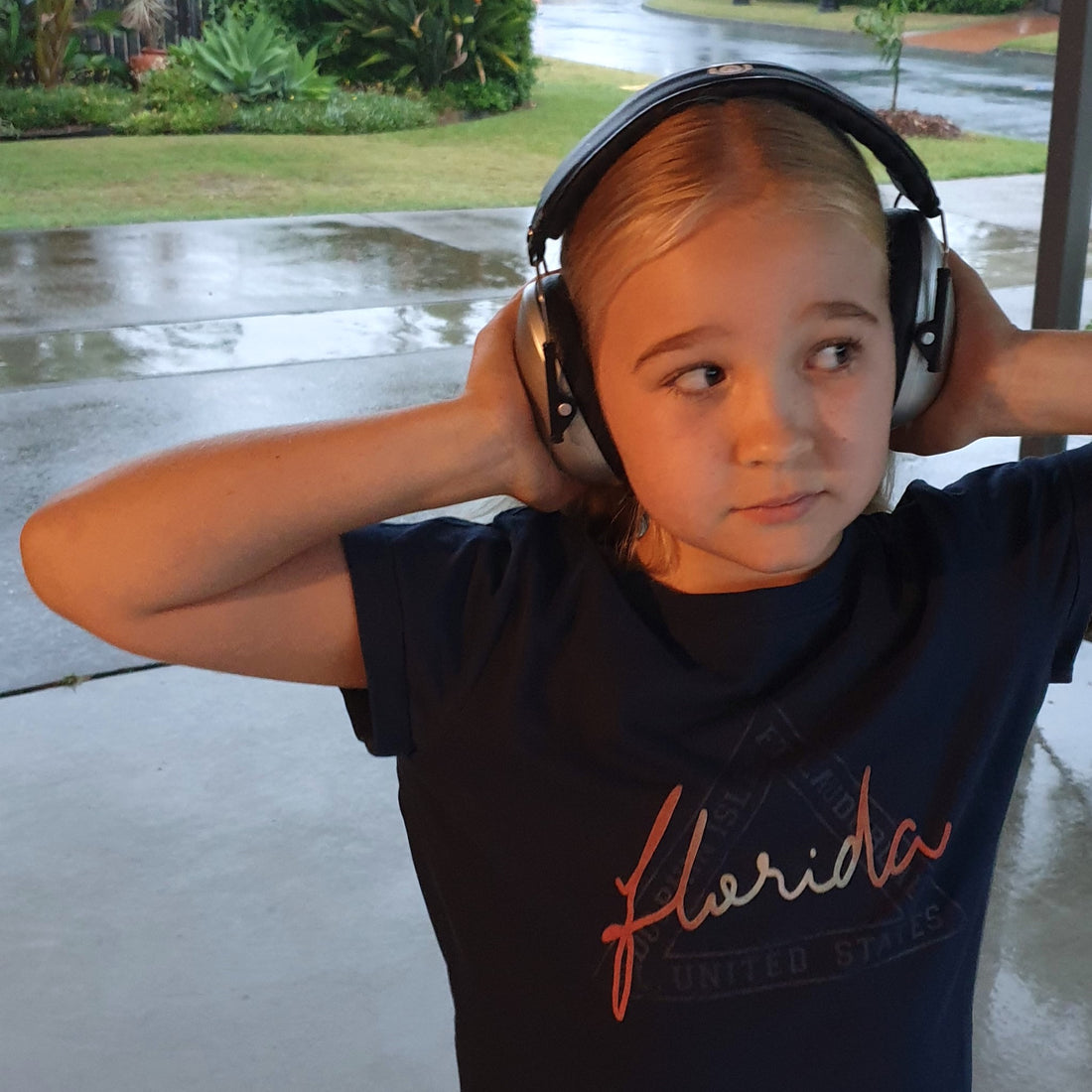
Earmuffs for school days
For my daughter the school environment can be very noisy and overloading at times. As she has auditory hypersensitivity, wet weather lunches and events (like sports days, incursions, and assemblies) can easily put her into auditory overload.
'Auditory Overload' is when the brain becomes so overwhelmed by the amount of sound information it needs to process, that it cannot focus on other things it's supposed to be doing, cannot predict what will happen next because it cannot process the sensory info for the moment), so therefore cannot keep us safe, and if it stays there long enough pops us automatically into a 'fight flight freeze' response which can look like anxiety, shallow breathing, grumpiness, faster heart rate, trouble completing a task already started, trouble remembering the steps of doing a simple task, and needing to leave the room quickly etc.
This overload may happen more easily to some people (eg. those with Autism, ADHD or Sensory Processing Disorder), as their brain can be structurally different to a neurotypical brain in that it may struggle to integrate the sensory information coming in the way it should. Therefore it may be paying way too much attention to the sounds in the environment... rather than ignoring sounds that are not important (gee... thanks brain! ).
Bromley, Hare, Davison, and Emerson (2004) reported that 70% of children with Autism exhibit hyper-sensitivity to auditory stimuli, making it the most common sensory hypersensitivity.
Research and observation now shows that the issue isn't necessarily just really loud noise, or sudden noise. If a few different noises are present at the same time (like conversations, music, kids playing nearby, birds chirping, and a tv in another room) then sensory overload can still be triggered and can affect someone’s ability to stay regulated and able to focus and learn.
- What's the solution? -
A 2016 published study by Ikuta and Iwanaga demonstrated the effectiveness of earmuffs and noise-cancelling headphones in helping children with Autism to cope with problem behaviours related to hyperreactivity to auditory stimuli.
A 2018 published study by Pfeiffer found that earmuffs increased participation in home, community, and school settings.
A research study published by Myles et al. (2000) suggested that caregivers should also provide earmuffs or earplugs for the child to wear during testing or seatwork (after verbal directives are given).
For my daughter I like to have another set available for her to use during the car trip home from school if needed, as this can be an especially sensitive time of the day after she has been in such a sensory dense / overloading environment all day, and she just needs a sensory break.
Let's give our neurodivergent little humans the best chance at school and let them have a set of earmuffs close by if needed. They may even learn to predict when they need the headphones and request them without prompting!
We've got this ❤️
Together.

REVIEWS
Rachael L. said:
" My autistic son is loving the earmuffs. They are comfortable on his ears and are a blessing to him when he enters school. He used to cover his ears and hide from the noise, now he walks to class ![]() ”
”
Lyndi C. said:
" My son has always covered his ears with his hands but wouldn't use earmuffs, until we purchased the earmuffs. Now my son takes them everywhere with the great hard case and his teacher has noticed a real difference in class. Highly Recommended!”
Cassie R. said:
" They are great we were just on a cruise my niece wanted to do karaoke if I didn’t have the ear Muffs we couldn’t have gone even went to sleep with them on"
